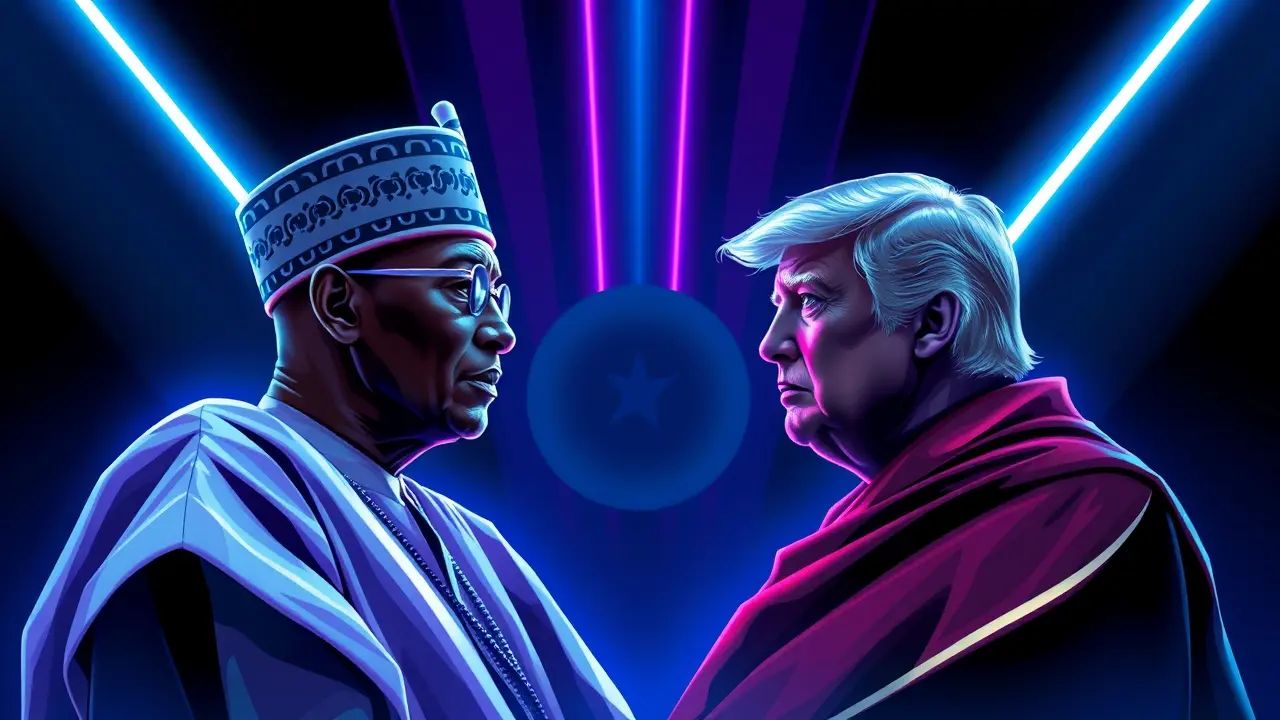
Politicsconflict & defenseMilitary Operations
Nigerian President Seeks Trump Meeting After US Military Threat
RO
Robert Hayes
1 day ago7 min read
In a diplomatic maneuver reminiscent of Cold War era posturing, Nigerian President Muhammadu Buhari's administration has initiated urgent efforts to secure a meeting with United States counterpart Donald Trump, following the American leader's startling social media declaration threatening military intervention in Africa's most populous nation. This geopolitical crisis erupted when Trump, leveraging his characteristic platform of choice, announced on Saturday that he had directed the Pentagon to draft potential attack plans against Nigeria, justifying this unprecedented threat by citing what he termed an 'existential threat' to Christianity from jihadist elements operating within the country's borders.The situation represents a dramatic escalation in U. S.-Nigeria relations, historically characterized by counterterrorism cooperation rather than confrontation, and echoes historical precedents where global powers have intervened in African nations under the guise of religious protection—a paradigm that colonial powers frequently employed during the Scramble for Africa. Nigeria's complex security landscape, where Boko Haram and Islamic State West Africa Province have waged protracted insurgencies primarily in the northeast, has indeed witnessed horrific violence against both Christian and Muslim communities, though analysts note that framing this conflict purely through religious lens oversimplifies the multifaceted drivers including governance failures, economic disparities, and regional ethnic tensions.The Trump administration's threat arrives amidst Nigeria's delicate balancing act between Western alliances and growing Chinese influence across the continent, potentially undermining years of diplomatic groundwork and threatening to destabilize regional security architectures that have gradually developed through multinational task forces. Historical parallels emerge when examining Woodrow Wilson's interventionist policies in Latin America or more recent Western military engagements in Libya, where regime change operations produced catastrophic regional consequences that continue to reverberate today.Security experts monitoring the Sahel region warn that unilateral American action could severely compromise Nigeria's sovereignty while inadvertently strengthening jihadist recruitment narratives portraying Western powers as modern crusaders, thereby exacerbating the very threats Trump claims to confront. The proposed Buhari-Trump meeting, should it materialize, would occur against this volatile backdrop, requiring diplomatic finesse comparable to Churchill's wartime negotiations—where national sovereignty, regional stability, and great power politics would converge in what may become a defining moment for African-Western relations in the 21st century.
#Nigeria
#US military threat
#diplomacy
#Trump
#jihadist violence
#featured
Stay Informed. Act Smarter.
Get weekly highlights, major headlines, and expert insights — then put your knowledge to work in our live prediction markets.
© 2025 Outpoll Service LTD. All rights reserved.